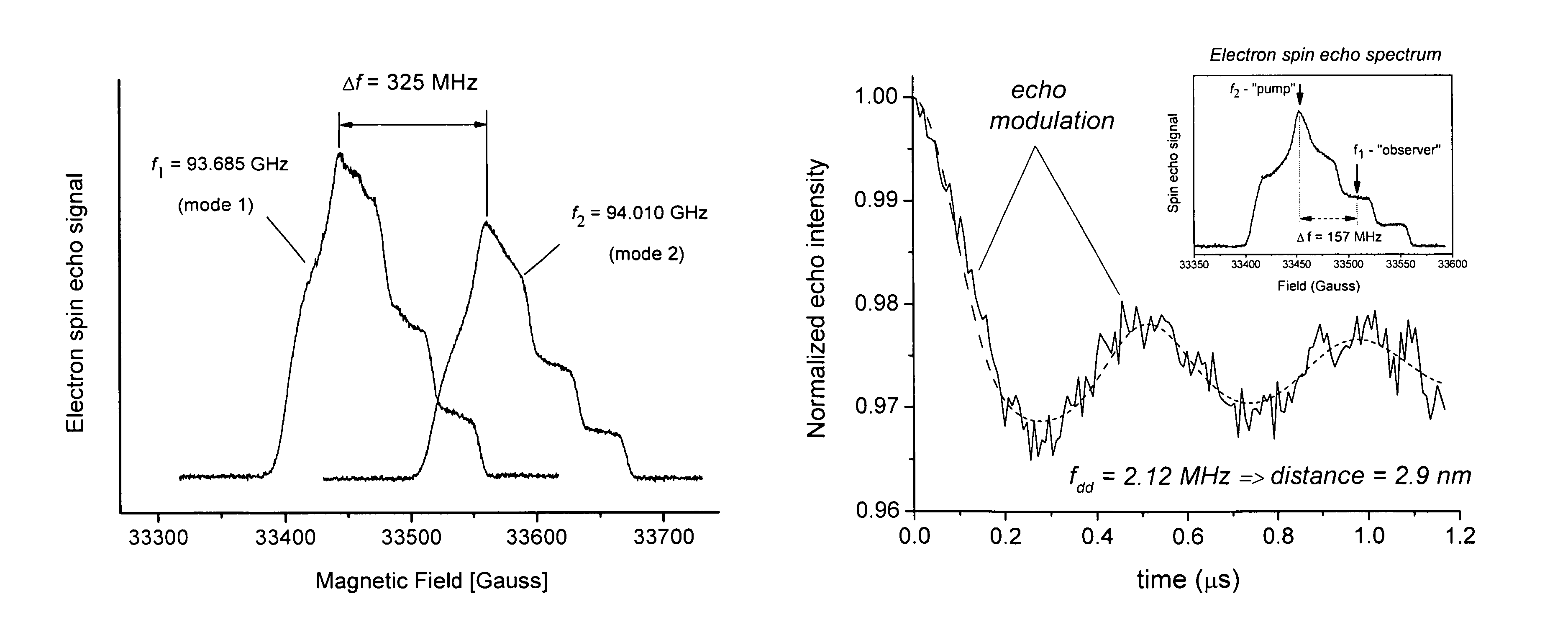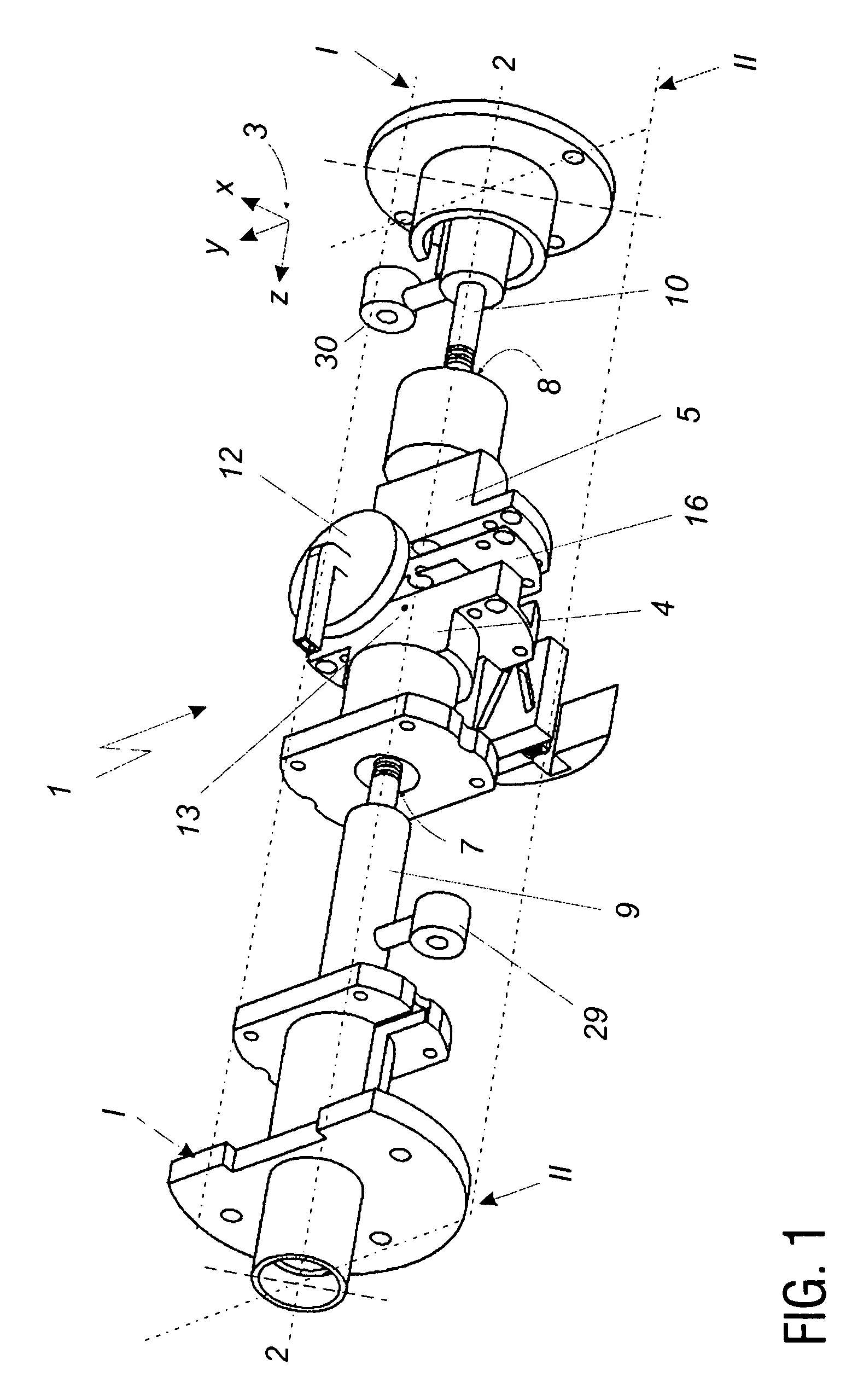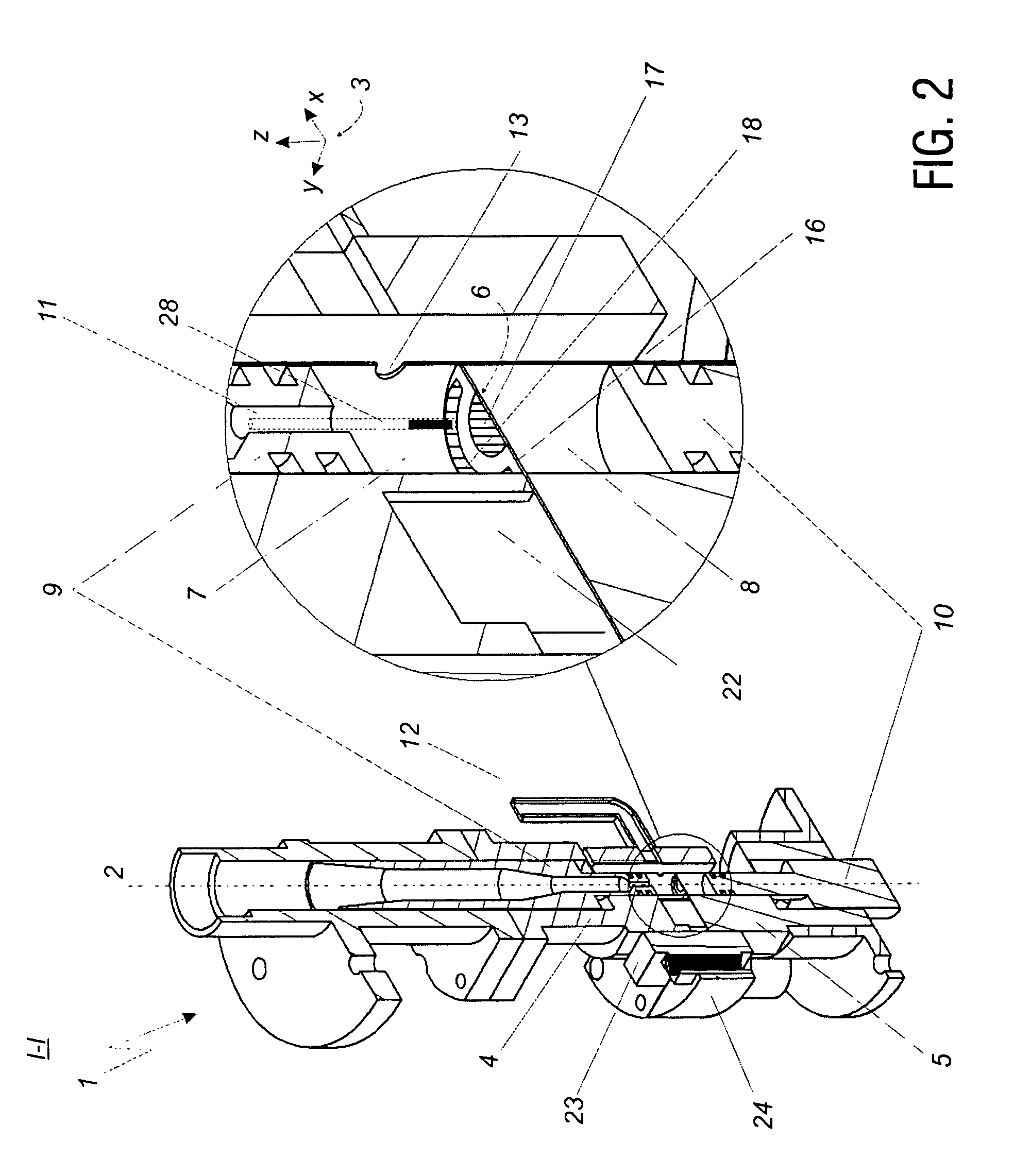Dual-mode microwave resonator device and method of electron spin resonance measurement
a microwave resonator and electron spin technology, applied in the direction of measurement devices, magnetic measurements, instruments, etc., can solve the problems of not being able to detect all possible orientations, not being able to achieve the right approach of a low-q resonator at high frequencies, and not being able to achieve the right approach
- Summary
- Abstract
- Description
- Claims
- Application Information
AI Technical Summary
Benefits of technology
Problems solved by technology
Method used
Image
Examples
Embodiment Construction
[0038]The general design of the dual-mode microwave resonator device is presented in the FIG. 1. The cross sections I-I and II-II of the assembled resonator with details of a junction between the resonance sections are sketched in FIG. 2 and FIG. 3, respectively. For ESR measurements, the dual-mode microwave resonator device is combined with further components of an ESR device (ESR spectrometer), like a magnet device providing a static magnetic field and a microwave source / detection system to induce and detect ESR signals. These components of the ESR device are not described in detail as they are designed as conventionally known from ESR technique.
[0039]The preferred embodiment of the microwave resonator device is referenced by numeral 1. The resonator extends along the longitudinal axis 2 which coincides with the z axis of the Cartesian coordinate system indicated by 3. The basic architecture of the resonator can be described as two cylindrical hollow resonance sections 7 and 8 pro...
PUM
 Login to View More
Login to View More Abstract
Description
Claims
Application Information
 Login to View More
Login to View More - R&D
- Intellectual Property
- Life Sciences
- Materials
- Tech Scout
- Unparalleled Data Quality
- Higher Quality Content
- 60% Fewer Hallucinations
Browse by: Latest US Patents, China's latest patents, Technical Efficacy Thesaurus, Application Domain, Technology Topic, Popular Technical Reports.
© 2025 PatSnap. All rights reserved.Legal|Privacy policy|Modern Slavery Act Transparency Statement|Sitemap|About US| Contact US: help@patsnap.com



